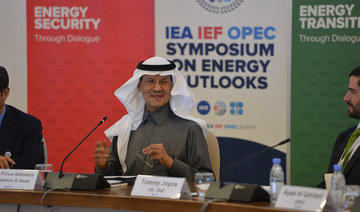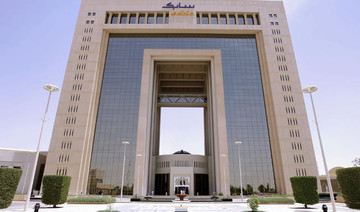JEDDAH: As the global energy industry prepares for the future of decarbonization and embraces new forms of energy such as hydrogen, Saudi Arabia is pushing ahead with its plan to be a global leader in forging a greener world.
Saudi Arabia was one of the key participants in the US-hosted Leaders’ Climate Summit on Earth Day (April 22), also the fifth anniversary of the Paris Agreement. The Kingdom has developed its first nationally determined contribution (NDC) under the Paris Agreement, which included carbon mitigation goals through 2030. Through the terms of the NDC, Saudi Arabia will continue to pursue its core goal to diversify its economy, but also work to reduce greenhouse gas emissions and reduce the impact of climate change.
In line with this, in March Saudi Arabia announced plans to build a $5-billion green fuel plant in NEOM, powered entirely by sun and wind power, in a bid to become the world’s largest supplier of hydrogen by 2025, Bloomberg reported.
“The Kingdom is committed to building a more energy-efficient and lower-carbon future, having announced goals to generate 50 percent of its power from renewables by 2030, with the remainder fueled by gas, displacing oil currently used for power generation in the country,” Hisham Bahkali, president and CEO of GE Saudi Arabia and Bahrain, told Arab News.
“Decarbonization is not a new national goal but instead one that Saudi Arabia has worked on for many years, including by promoting the transition to more efficient power generation. These efforts were accelerated under Saudi Vision 2030,” Bahkali said.
During Saudi Arabia’s hosting of the G20 presidency, energy ministers endorsed a critical new approach to carbon management — the circular carbon economy — which comprehensively supports a sustainable future for clean energy.
As an active contributor to the Kingdom’s power industry for the past 80 years, GE is well-positioned to help the Kingdom achieve its decarbonized goals. In October 2020, the American multinational conglomerate announced its plan to reach net-zero carbon emissions at its facilities and operations by 2030.
The company is proud of its innovative Advanced Gas Path (AGP) gas turbine upgrade solution. AGP was installed on three 6B gas turbines at Saudi Cement’s Hofuf plant, helping to enhance efficiency by up to 3.3 percent per unit.
This technology can simultaneously increase output, efficiency and availability, while reducing fuel consumption and the impact on the environment.
“Converting simple cycle power plants to combined cycle — something that can be accomplished in as little as 16 months — can enable them to produce up to 50 percent more electricity using the same amount of fuel. This means fewer emissions per megawatt-hour of power generated,” Bahkali said.
Bahkali believes GE’s H-class gas turbines can help Saudi Arabia reduce its carbon dioxide emissions per megawatt hour of power generated, compared to currently installed older gas turbine fleets. The technology is already used in the UAE, where it was installed at the 1.8 GW Hamriyah Independent Power Plant in Sharjah, which is expected to be the most efficient in the Middle East.
According to Bahkali, the technology can help Sharjah Electricity, Water and Gas Authority to reduce carbon dioxide emissions by up to 4 million tons per year, which is the equivalent of taking 1 million cars off the UAE’s roads.
“As part of its overall energy plan, Saudi Arabia also aims to have around 16 GW of wind power by 2030,” Bahkali said. “We are well-positioned to help meet this goal through GE’s Cypress onshore wind turbine technology, digital solutions and long-term commitments to operational performance through our full-service agreements.”
GE’s Arabelle steam turbine can also support the Kingdom’s goal to have nuclear power plants, as 50 percent of the world’s nuclear power plants use GE Steam turbine technology. This technology is capable of generating up to 1,750 MW of dependable CO2-free power from a single turbine, with proven reliability of 99.96 percent.
GE also has the largest fleet experience in using alternative low heating value fuels, including hydrogen for power generation.
“Given the large GE gas turbine fleet installed in the Kingdom and the presence of our power-focused Hot & Harsh R&D Lab at the GE Manufacturing and Technology Center campus in Dammam, there is potential to start work on pilot projects with local partners in Saudi Arabia that would introduce CO2-free hydrogen into the gas mix for power generation,” Bahkali said.



























